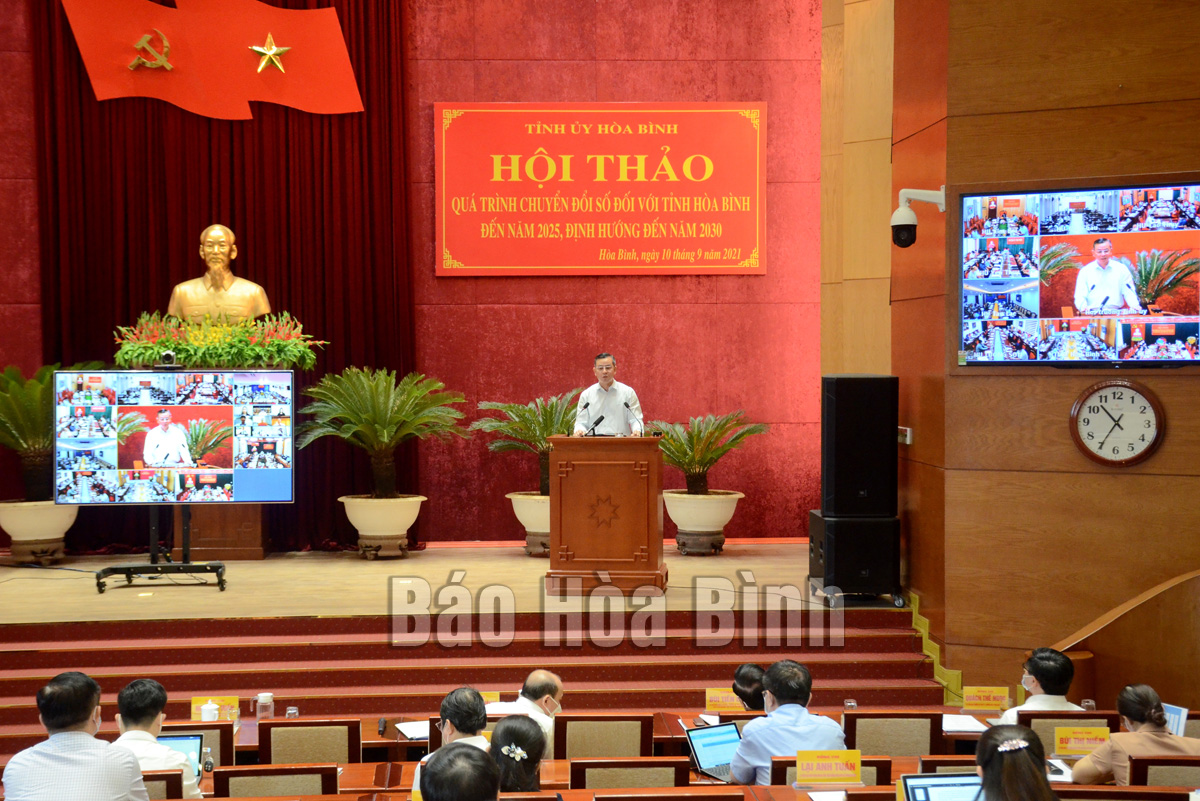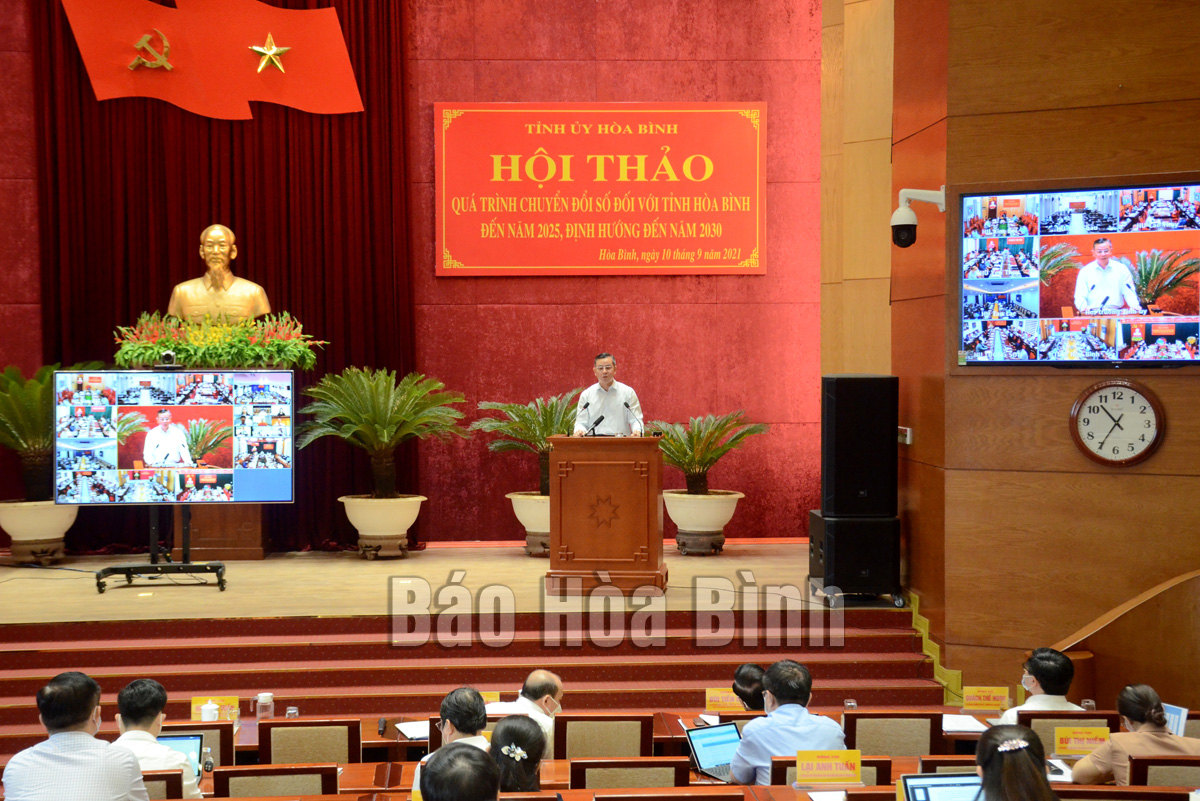
(HBO) – The standing board of the Hoa Binh Party Committee, on September 10, organised a webinar on digital transformation.
provincial Party Committee, speaks at the event.
According to Nguyen Van Chuong, Vice Chairman of the provincial People’s Committee, digital transformation has initially helped improve the effectiveness of directing, operating and handling administrative procedures for businesses and people in Hoa Binh.
As part of efforts to increase its position in the national digital transformation ranking by 2025, Hoa Binh aims to basically complete the goals related to e-government building, promote the development of smart cities, and achieve basic goals in a number of important fields across all three pillars of digital government, digital economy, and digital society, among others. By 2030, the transformation is expected to take place synchronously and comprehensively across the province.
At the event, Chairman of FPT Corporation Truong Gia Binh and other experts briefed on Vietnam’s digital transformation and Hoa Binh’s approach to the process, which they said will lead to a total and comprehensive change of the way of living, working and production based on digital technology for both individuals and organisations.
Participants agreed that for the process to be successful, full awareness and political determination are key, adding that Hoa Binh’s digital transformation should focus on the agricultural sector and take place within businesses to create new values based on complete changes across fields.
Speaking at the event, Ngo Van Tuan, member of the Party Central Committee and Sectary of the provincial Party Committee, highlighted the important role of digital transformation in the development of Hoa Binh, adding that it is an important task in implementing the provincial Party Committee’s resolution and action plan.
He requested units involved work with FPT Corporation in building a road map and assigning tasks for the transformation, initially in agriculture and farm produce distribution; health; education; smart city building; and e-commerce development./.
In the spirit of "Party members go first, the people follow”, all households of Party members in the Doan Ket sub-region in Da Bac town, Da Bac district, voluntarily removed gates and fences, and donated land when the road expansion project passed through their properties. Inspired by their example, 68 households in the sub-region quickly followed suit, contributing over 1,400 sq.m of residential and perennial cropland to widen the main road through the residential area. The exemplary role of Party members in Doan Ket stands as a shining example of studying and following President Ho Chi Minh’s thought, morality, and lifestyle.
The Hoa Binh provincial People's Committee held a monthly meeting on May 29 to assess the implementation of socio-economic development tasks in the first six months of 2025, the progress of key projects, and some other important issues.
During his lifetime, President Ho Chi Minh always expressed his deep affection and special concern for children and youth. He once emphasized: "Caring for and educating children well is the responsibility of the entire Party and the entire people”; "First of all, the family (i.e. grandparents, parents, siblings) must do this job well”. "the Party Committees…, the Children’s Committee, the Youth Union, the education sector, and all related organizations must have specific plans to ensure children grow healthier and more progressive”. His teachings has been remaining valuable and serving as the guiding principles in the work of protecting, caring for, and educating children. In line with this ideology, Hoa Binh Province has continuously been prioritizing and investing resources in the well-being of children in recent years.
Mr. Nguyen Phi Long, the alternate Member of the Party Central Committee and Secretary of the Provincial Party Committee chaired the meeting of the Standing Committee of the Provincial Party Committee to provide opinions on several investment projects within the province. There was the attendance of Ms. Bui Thi Minh, the Permanent Deputy Secretary of the Provincial Party Committee and Chairwoman of the Provincial People’s Council; Mr. Bui Đuc Hinh, the Deputy Secretary of the Provincial Party Committee and Chairman of the Provincial People’s Committee and other members of the Standing Committee; the leaders from other departments, agencies, and some localities.
The Standing Board of the Vietnam Fatherland Front (VFF) Committee of Hoa Binh province held a meeting on May 28 to honour outstanding village elders, village heads, and reputable individuals from local ethnic minority and religious communities.
In mid-May, the provincial Museum organised an exhibition named "Duoi la co Dang Cong san Viet Nam quang vinh” (Under the flag of the glorious Communist Party of Vietnam). This meaningful activity took place in the joyful atmosphere to celebrate the country's major holidays and the Party congresses at all levels for the 2025-2030 term, towards the 14th National Party Congress.



